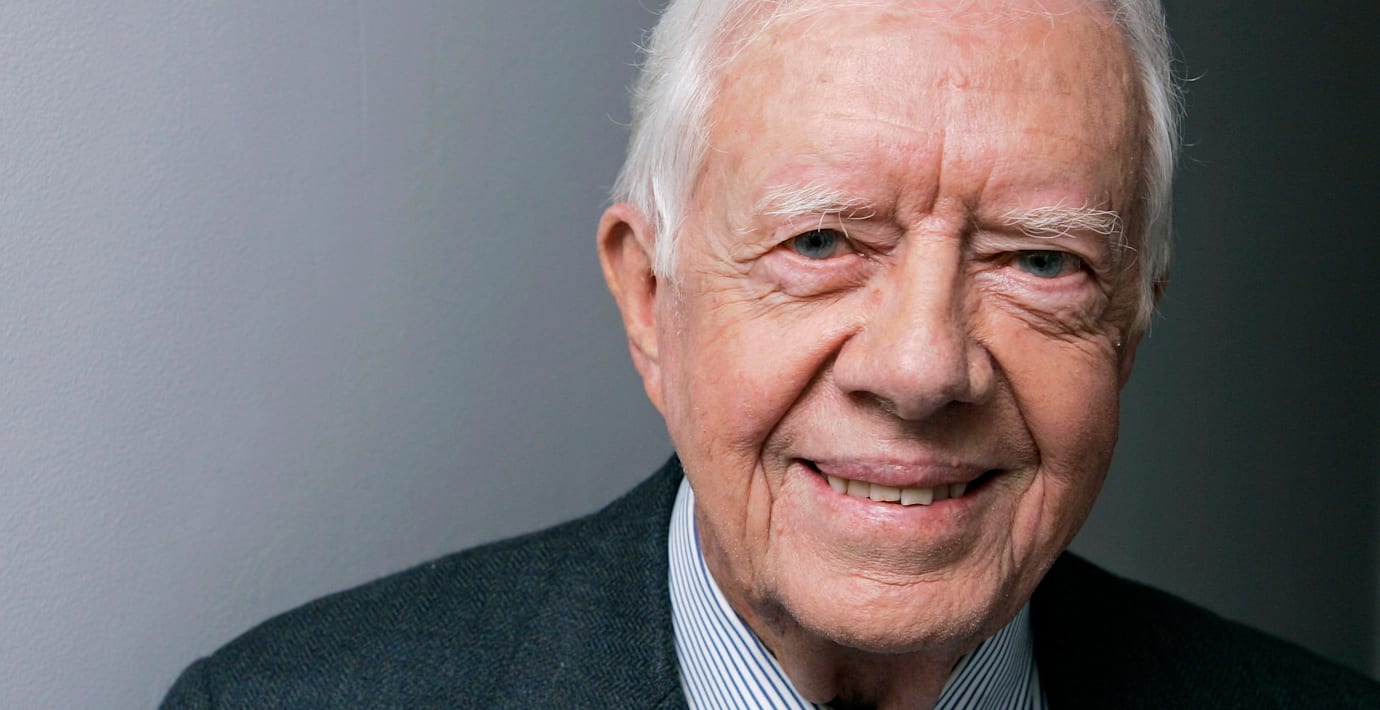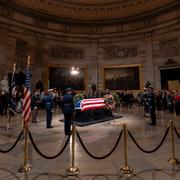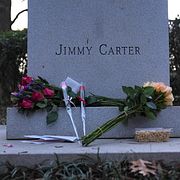
USA-börserna håller stängt 9 januari – ska hedra president Carter
USA:s börser kommer hålla stängt den 9 januari för att hedra den tidigare amerikanska presidenten Jimmy Carter efter hans bortgång den 29 december. Det rapporterar flera internationella medier.
Börserna hölls stängt i samband med en nationell sorgedag i landet.
bakgrund
Jimmy Carter
Wikipedia (en)
James Earl Carter Jr. (October 1, 1924 – December 29, 2024) was the 39th president of the United States, serving from 1977 to 1981. A member of the Democratic Party, Carter previously served from 1963 to 1967 in the Georgia State Senate and from 1971 to 1975 as the 76th governor of Georgia. He was the longest-lived president in U.S. history and the first to live to 100 years of age.
Born and raised in Plains, Georgia, Carter graduated from the U.S. Naval Academy in 1946 and joined the U.S. Navy's submarine service. He returned home after his military service and revived his family's peanut-growing business. Opposing racial segregation, Carter supported the growing civil rights movement, and became an activist within the Democratic Party. Carter served in the Georgia State Senate from 1963 to 1967 and then as Governor of Georgia from 1971 to 1975. As a dark-horse candidate not well known outside Georgia, he won the Democratic nomination and narrowly defeated the incumbent president, Gerald Ford of the Republican Party, in the 1976 presidential election.
Carter pardoned all Vietnam War draft evaders on his second day in office. He created a national energy policy that included conservation, price control, and new technology. Carter successfully pursued the Camp David Accords, the Panama Canal Treaties, and the second round of Strategic Arms Limitation Talks. He also confronted stagflation. His administration established the U.S. Department of Energy and the Department of Education. He was the only president to serve a full term without appointing a justice to the Supreme Court. The end of his presidency was marked by the Iran hostage crisis, an energy crisis, the Three Mile Island accident, the Nicaraguan Revolution, and the Soviet invasion of Afghanistan. In response to the invasion, Carter escalated the Cold War by ending détente, imposing a grain embargo against the Soviets, enunciating the Carter Doctrine, and leading the multinational boycott of the 1980 Summer Olympics in Moscow. Carter defeated challenger Ted Kennedy in the 1980 Democratic Party presidential primaries but lost the general election in a landslide to Ronald Reagan, the Republican nominee.
After leaving the presidency, Carter established the Carter Center to promote and expand human rights, and received a Nobel Peace Prize in 2002 for his work in relation to it. He traveled extensively to conduct peace negotiations, monitor elections, and further the eradication of infectious diseases. Carter was a key figure in the nonprofit housing organization Habitat for Humanity. He also wrote numerous books, ranging from political memoirs to poetry, while continuing to comment on global affairs, including two books on the Israeli–Palestinian conflict. Polls of historians and political scientists generally rank Carter as a below-average president. Scholars and the public more favorably view his post-presidency, which was the longest in U.S. history.
Omni är politiskt obundna och oberoende. Vi strävar efter att ge fler perspektiv på nyheterna. Har du frågor eller synpunkter kring vår rapportering? Kontakta redaktionen



